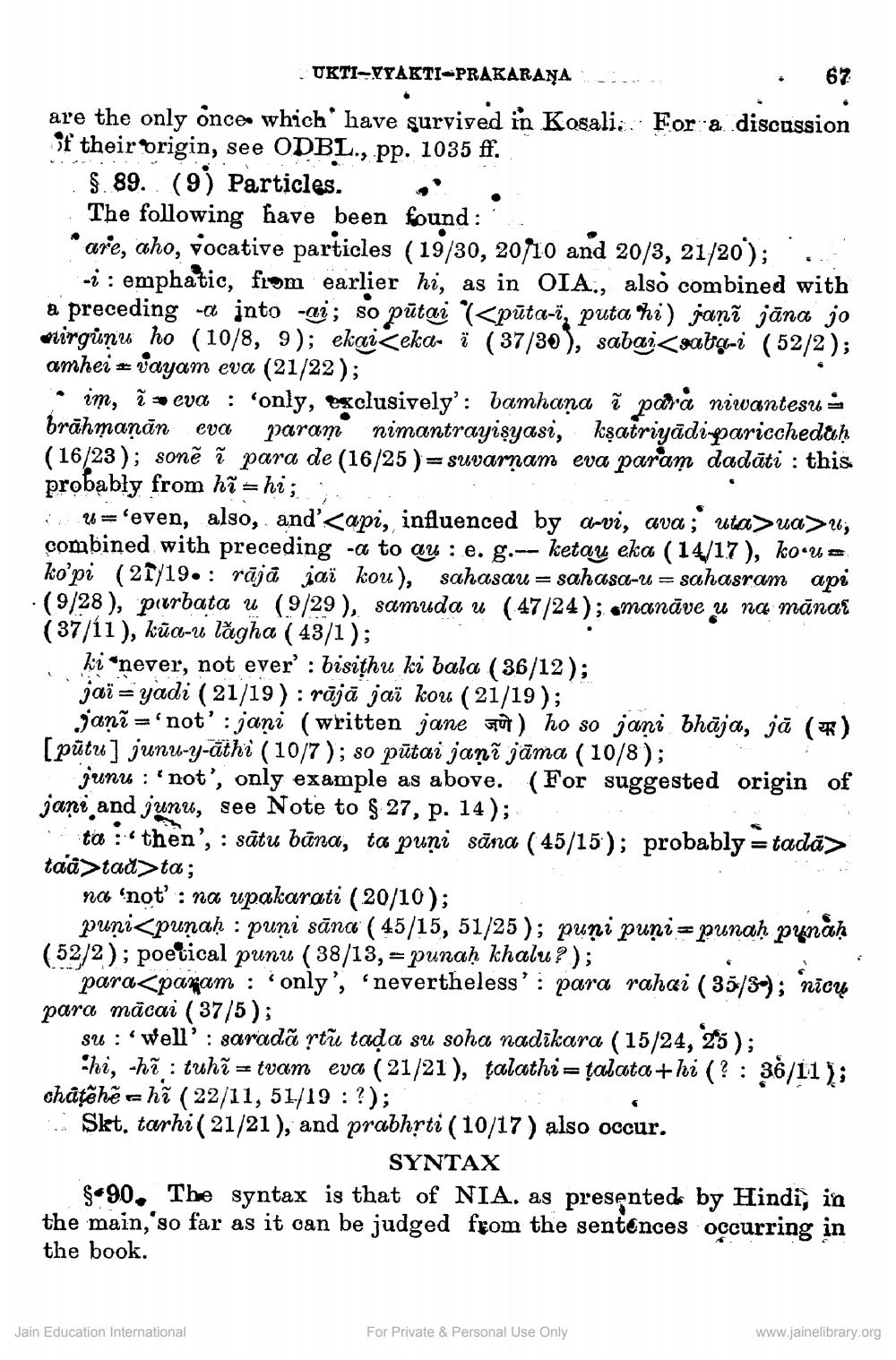________________
UKTI-VYAKTI-PRAKARANA
are the only once which have survived in Kosali. For a discussion of their origin, see ODBL., pp. 1035 ff.
§ 89. (9) Particles.
The following have been found:
are, aho, vocative particles (19/30, 20/10 and 20/3, 21/20');
:
i emphatic, from earlier hi, as in OIA., also combined with a preceding a into ai; so pūtai (<pūta-i puta hi) janî jāna jo irginu ho (10/8, 9); ekaieka i (37/30), sabai sabg-i (52/2); amhei vayam eva (21/22);
67
param
im, eva only, exclusively': bamhana i para niwantesu= brāhmaṇān eva nimantrayisyasi, ksatriyadi-paricchedth (16/23); soně i para de (16/25)=suvarnam eva param dadati: this. probably from hĩ = hi;
u'even, also, and'<api, influenced by a-vi, ava; uta>ua>u, combined with preceding -a to au: e. g.-- ketay eka (14/17), kouko'pi (21/19: rajā jai kou), sahasau sahasa-usahasram api (9/28), parbata u (9/29), samuda u (47/24); manāve u na mānaṛ (37/11), kua-u lagha (43/1);
ki never, not ever': bisithu ki bala (36/12); jaiyadi (21/19): rājā jaï kou (21/19); jani'not' jani (written jane ) ho so jani bhaja, jā (*) [putu] junu-y-athi (10/7); so pūtai janī jāma (10/8);
junu 'not', only example as above. (For suggested origin of jani and junu, see Note to § 27, p. 14);
C
to then', satu bāna, ta puni sāna (45/15); probably = tada> taa>tad>ta;
na 'not' na upakarati (20/10);
puni punah puni sāna (45/15, 51/25); puni puni punah punah (52/2); poetical punu (38/13, punah khalu?);
6
•
para<param only', 'nevertheless' para rahai (35/3); nicų para macai (37/5);
su: well' sarada rtu taḍa su soha nadikara (15/24, 25);
hi, hi tuhi tvam eva (21/21), talathi - talata+hi (?: 36/11); chatëhë-hi (22/11, 51/19: ?);
Skt. tarhi (21/21), and prabhṛti (10/17) also occur.
SYNTAX
§ 90. The syntax is that of NIA. as presented by Hindi, in the main, so far as it can be judged from the sentences occurring in the book.
Jain Education International
For Private & Personal Use Only
www.jainelibrary.org




